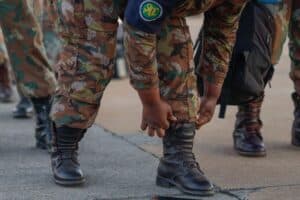Basic Education Education Angie Motshekga briefed the media on Monday about plans to reopen schools and why there had been yet another last-minute delay in these plans.

These are the important points from her speech:
– Reopening postponed
Motshekga explained that the decision to postpone the reopening of schools was taken after consultation with stakeholders indicated that schools across the country were on various levels of readiness.
On Saturday, the department received three critical reports and, after meetings with these stakeholders, the decision was taken.
“Based on these reports, it became clear that the sector was at different levels of readiness.
“In the main, it was for this reason that the Council of Education Ministers determined that the sector requires more time to mop up its state of readiness for school reopening, in order to comply with the health and safety standards on Covid-19,” Motshekga said.
“Critical to the reopening of schools was, and still remains, absolute compliance with the all health, safety and social distancing protocols pronounced by the Department of Health,” she added.
– Issues for reopening
Motshekga explained that staff training on Covid-19, the delivery of PPEs and water and sanitation to schools were still factors to be sorted out.
– Schools will reopen on 8 June
The minister stressed that parents should not take their children to school on Monday. However, teachers whose PPEs had been delivered were expected to go back.
Teaching will resume on 8 June, she said.
– Permits for learners and teachers
For educators who had to commute between districts, metros or provinces, permits would be issued by the head of the Department of Education or a delegated official, Motshekga said.
A certificate would be given – by the principal of the school or a delegated person – to pupils who needed to commute to and from school. This would be done in compliance with the regulations.
Those transporting children to school must also have permits.
– No extramurals
All extramural activities, including sport and cultural activities, remain suspended until further notice.
– Children who do not return to school
Parents who do not want to send their children back to school must apply to the head of their province’s education department, which can exempt a pupil either entirely, partially or conditionally in terms of the South African Schools Act – if it is in their interest.
– Matric exams
Motshekga noted anxiety around the issue of matric exams.
She said the May/June exams this year – for those who registered for the Senior Certificate and the National Senior Certificate – would be held in November/December, unless unforeseen events made this impossible.
– Covid-19 plan
Motshekga said all schools must create Covid-19 workplace plans and must comply with minimum health, safety and social distancing measures.
Parents must not send their children to school if they are showing any symptoms of Covid-19, and everyone entering the school must be screened for Covid-19, Motshekga said.
There must also be sufficient sanitiser for everyone, facilities for hand washing, cleaning of surfaces and equipment, and a mask for everyone.
Social distancing measures are a priority to be implemented in all schools, Motshekga said.
– Curriculum re-engineering
Motshekga said a “whole term” of schooling had been missed and many more days were likely to be lost in future.
To recoup the time lost, she said the schooling system had to be re-engineered, timetables adjusted, and curriculums reviewed together with a team of experts.
For more news your way, download The Citizen’s app for iOS and Android.
Support Local Journalism
Add The Citizen as a Preferred Source on Google and follow us on Google News to see more of our trusted reporting in Google News and Top Stories.






